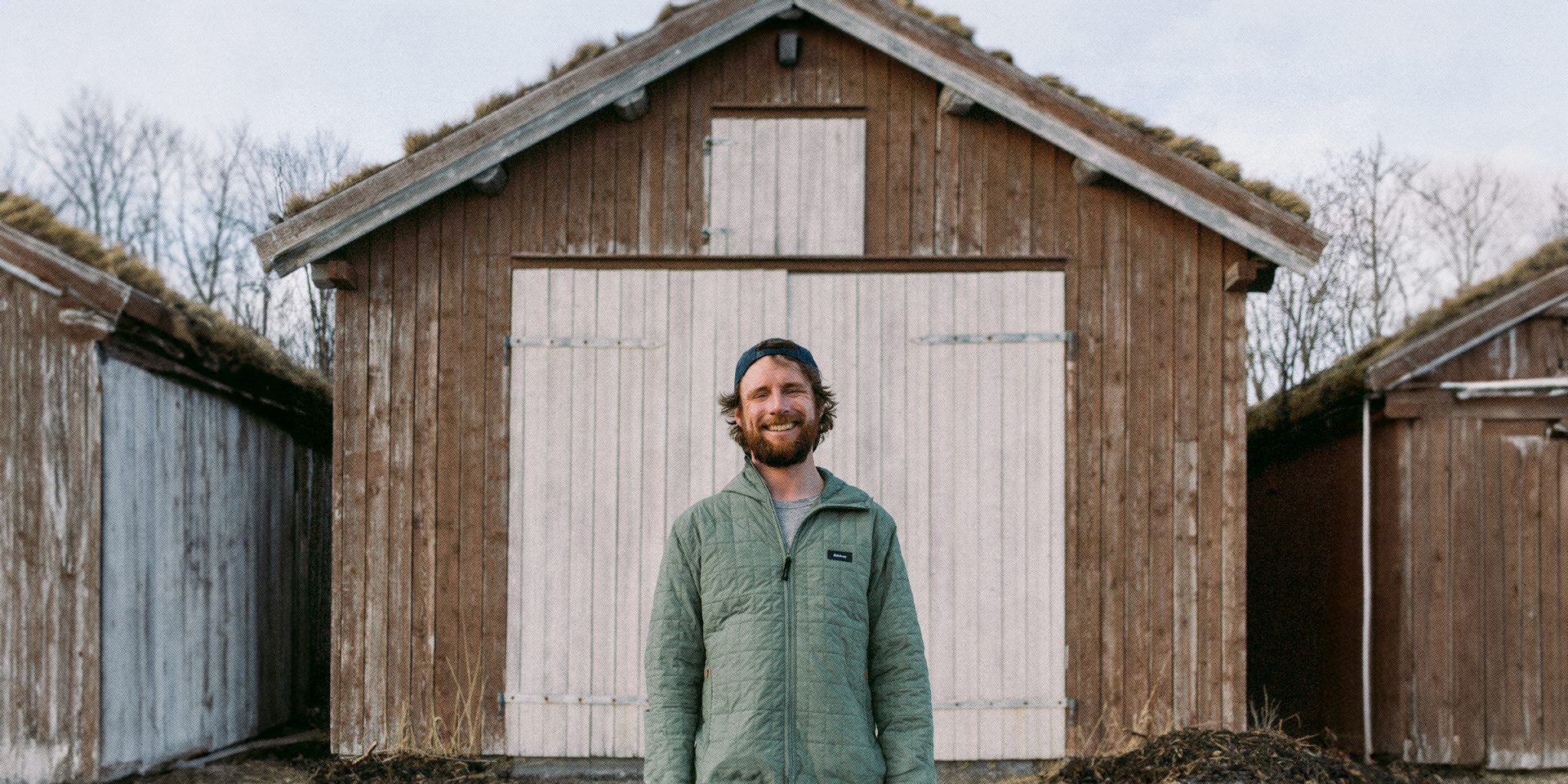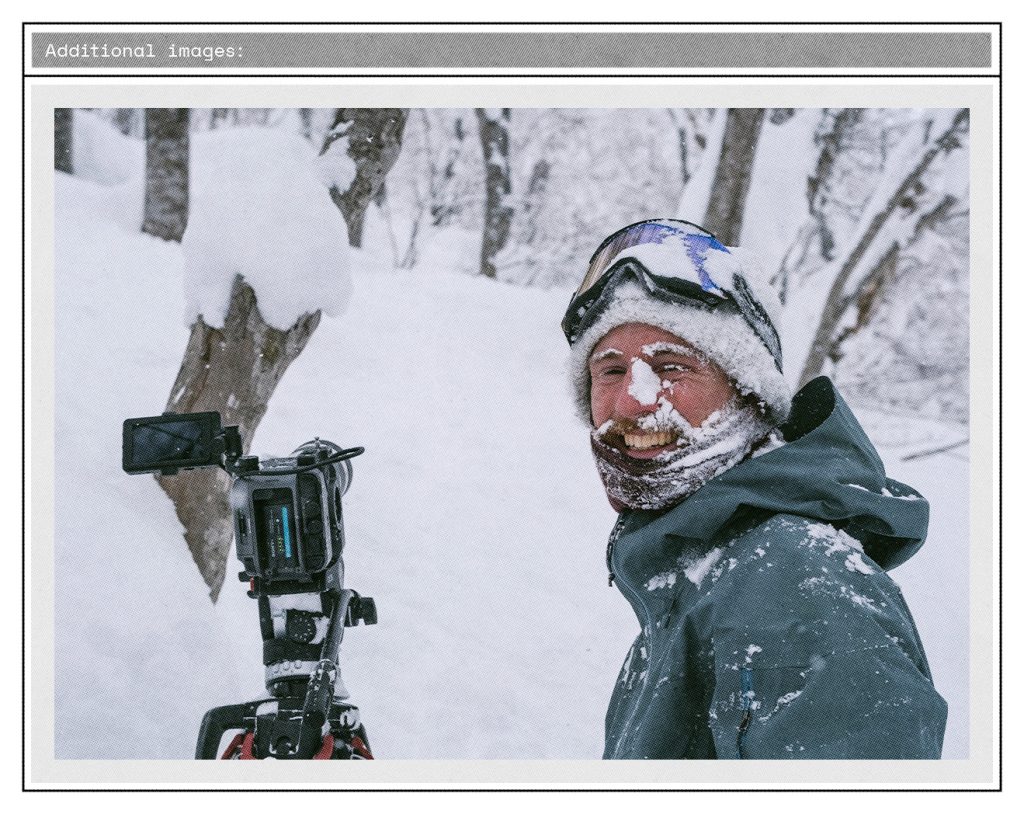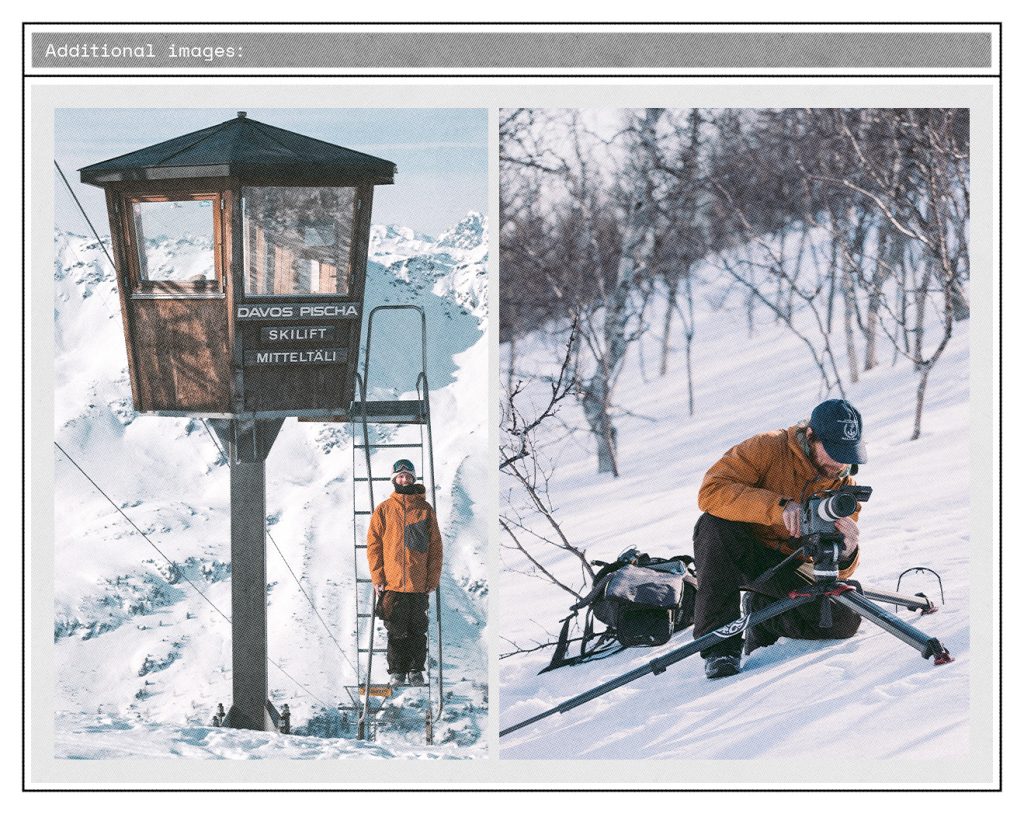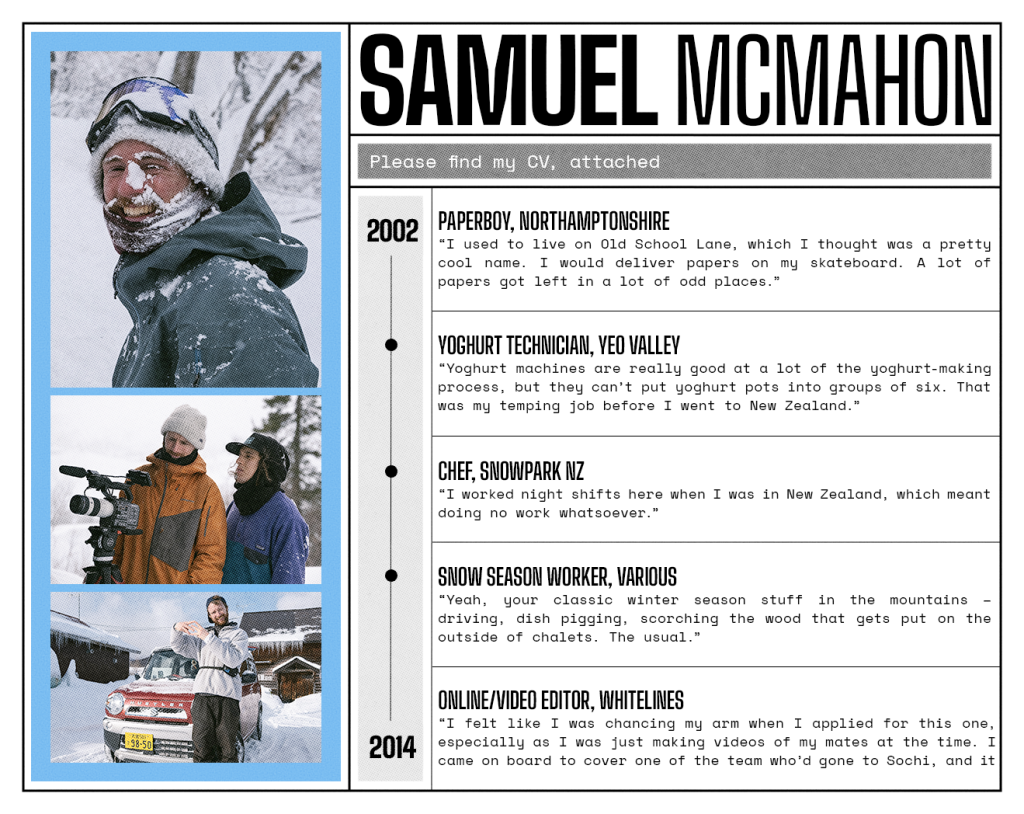ACM’s Outsider Insiders: Samuel McMahon

SAM MCMAHON’S FOUR-LEGGED PAL HAS JUST RAIDED A PORTUGUESE BIN.
So begins our chat with the snowboard photographer, filmmaker, and writer, who isn’t at home in Morzine right now. He’s out of office, on holiday somewhere near Sagres, sitting under a caravan canopy and watching pooch, Parker, strut back to base after almost certainly sniffing out a number of trash treats.
“I got an absolute drubbing in the surf just now,” he says, settling in to chat about life mentors, climate issues, extraordinarily public displays of racism, Brexit-induced barriers to filmmaking, and how he is definitely not Christopher Nolan. It’s a surf he’s more than earned too, given how most of his year has been intensely focused on the release and touring of his new film, Left Right.
Made with his work pals (and ACM clients) Nidecker, Sam’s edit explores and captures the art at the heart of snowboarding: turning. It’s a film that took him and his crew to classic Euro resorts, wild backcountry faces, Japanese flatlands, and on the international film circuit he’s just got back from.
But that’s not the only reason we’ve interrupted Sam’s holiday. He’s earned hallowed ACM Outsider Insider status after more than a decade at the front of behind-the-scenes snowboard creativity.
No doubt he’s captured some of the biggest innovations and innovators in the sport, courtesy of Nidecker and his film projects, but he’s also held a prime editorial seat aboard the rollercoaster that is snowboarding’s core media. It’s there that you’ll find his name attached to a full gamut of technical, lifestyle, and cultural snowboarding storytelling, from arguing in favour of Olympic snowboarding grabs right through to examinations of racism within the snow sports cultures.
But yeah, the fact his new film absolutely rips also helped to seal the deal, too…

The Japanese approach to snowboarding is awesome. They’ve seen what the rest of the world is doing and put their own amazing spin on it. Slowly sliding down an easy run doesn’t exist there – you’re taught to carve from day one. In Left Right, Kaori [Terabyashi] gets these insane trench-like turns in, but she can’t actually do a classic spray on the piste. She’s just not used to using her edges that way. In Europe, learning to snowboard is all about keeping speed down. In Japan, it’s all about maintaining it.
You get the best coffee and the best pizza in Japan, by the way.
I’ve had to be pretty careful at film festivals with how I explain Left Right. I got the obvious “so what’s this film about?” question, and explained that a lot of films are quite “Ah, look at me!” and that I wanted to do something the viewer could put themselves inside while still seeing guys and girls doing amazing stuff. So I had to explain all that, knowing full well that the next film was probably another “Ah, look at me!” movie.
I just wanted to do something different. Which is not to say the rest of the footage on show is not what I want to see – I definitely enjoy those films, and I’ll definitely make more of them.
The original tagline for Left Right was: “A film where no one leaves the ground.” But that wasn’t entirely true in the end – the riders do some absolutely insane stuff. Even so, it definitely still feels grounded.
I’m not saying I’m Christopher Nolan, but his ‘one for them, one for me’ approach is a lot like how I work with Nidecker. That’s been the deal from the start. A lot of what I do is brand clips and spreadsheets or whatever. And then there’s the bigger editorial filmmaking that I have more creative say in. I like that balance. I like having what feels like a real job, rather than just some kind of fantasy gig.
I’m sorry, but Brexit. It makes me so mad. I had these amazing opportunities in the Alps for a bunch of seasons, working bad jobs to buy bad cameras, getting my riding to a good place, getting fit enough to carry a huge bag of kit all the time, learning about mountain safety, and developing my photography and filmmaking skills. I had the freedom to learn everything I need to do what I do today. Now that freedom doesn’t exist for younger filmmakers. It’s so sad.

[Former Whitelines editor] Ed Blomfeld is the man. He taught me a lot – not just about the mechanics of shooting, but the realities of going on trips, and how to be a Trip Dad. I used to shoot with [French photographer] Matt Georges a lot too. I love everything he does. I’m basically just trying to be my own version of him.
You have to fuck up a bunch of times before you can start getting to the good stuff.
If you think that racism doesn’t exist in snowboarding, then you’re blind. When we were travelling through Germany and Austria for the Freeride Film Festival, I was stood outside a theatre with one of our Japanese riders and someone did the fucking Asian eyes thing at them. That wasn’t the only incident on that trip, either. It was a horrible insight into what non-white people have to deal with.
That said, I do think we’re in a better place than we were 10 years ago. At Kendal Mountain Festival earlier this year, right after my film was the trailer for Descendance, about Dennis Ranalter and the diversity issues in snow sports. It’s an amazing story. And then there are charities like Snow Camp – they’re doing incredible things by taking disadvantaged young people in the UK to experience the snow. Beyond that, I’m seeing brands embracing a unisex approach to kit and gear – despite there being a bit of blowback from shops that are freaking out about how they can categorise it on their website, for example. It’s great to see.
There were two films that I saw on this festival circuit that really stood out to me. One called The Blackcountry Journal by Mallory Duncan. It’s got spoken-word poetry, jazz, and other nods to black culture. It’s only ten minutes, but it’s so cool. And then another by an all-female team, called Cycles. It’s beautifully filmed and explores how the menstrual cycle affects performance.
I love films that set out with a question and answer it brilliantly.
You’re never going to leave a project having done everything you wanted to do. I wanted some pipe riding – I think it’s often the unsung hero of snowboarding. But time, conditions, and living in France where there are no halfpipes meant we had to do without.
We used a company called Carbon Neutral to monitor all the emissions created in Left Right. I’ve always been sceptical of paying your way out of carbon debt, but I was convinced. The process was incredibly thorough – from tracking the obvious things like flights to Japan, right down to how your editor gets to work and what they do when they arrive at their desk. You have to prove that you’ve taken considered steps right along the way to reduce your emissions, too. So it’s not just a case of handing in your data and paying the fee to get certified. There’s so much more to it.
Obviously, there is nothing positive about climate change. But putting a tiny bit of glitter on a massive turd, it really challenges me, creatively. And I like to be challenged. I like having boundaries – I don’t enjoy being able to create just anything. For example, when a really wild weather front comes in and forces me to scrape an idea together to get some footage, I enjoy that. I think it makes for something more interesting.
SAMUEL MCMAHON: A RÉSUMÉ
Ever wondered what kind of work experience gets you a top job in the outdoors? Here’s one way of doing it…
